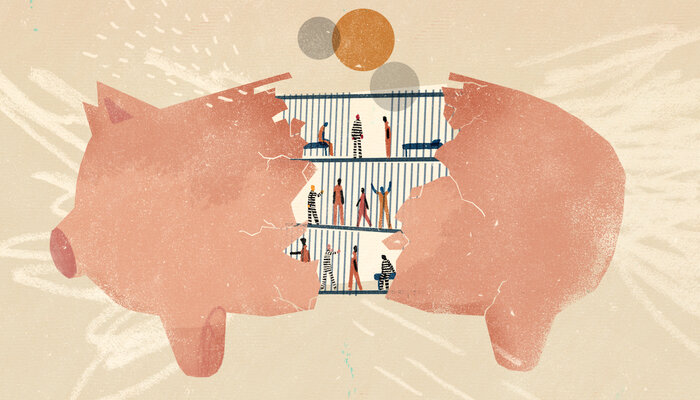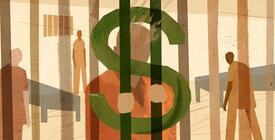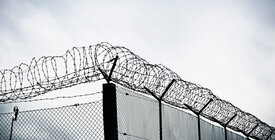The American criminal legal system is filled with entrenched economic incentives that drive and perpetuate mass incarceration. Police, the judiciary, corrections agencies, and counties themselves are just some of the entities that rely on the revenue extracted from the very people who are processed through the criminal justice system as they pay for the cost of being arrested, prosecuted, supervised, and incarcerated.
There is also a growing market of detention and correctional beds, where people are traded between county, state, and federal jurisdictions — all for a price per head. This practice incentivizes governments to build more detention bed space than they need in order to generate revenue for their jurisdictions. Beyond just economic incentives, career motivations play a role in producing productivity metrics that encourage punitive measures — arrest, more serious charges, longer sentences — even where other actions might be more appropriate.
This series exposes these perverse incentives and offers policy recommendations for realigning priorities so revenue generation doesn’t drive the justice system’s practices, which should be about fairness, equity, and public safety.







